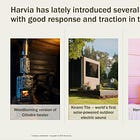How We Define Sustainable Quality Compounding (Part 1)
Our thoughts on ROIIC, cash IRR, cyclicality, reinvestment runway, and pricing power
Coming Full Circle
Over the past two weeks, we’ve been quite busy elaborating on ROIIC, FCF optionality, and our premium members’ questions on various - oftentimes math oriented - topics.
The title of this blog “Sustainable Quality Compounding” is borrowed from Diploma Plc’s mission statement.
Diploma will be our next deep dive. We’ll step up our in-depth reports fairly soon as we’ve now cycled through Q1 earnings season and published our high priority writings on the cornerstones of our fundamental analysis process. Additionally, we’ll definitely continue the Members’ Q&A" discussions.
In this three-part blog, we’ll tie all pieces of sustainable quality compounding together by discussing six companies: Harvia, Copart, TJX, Tractor Supply, and Pool Corporation.
The common denominator is that these companies have a tangible network, and hence, ROIIC and risk of over-investing in new capacity or the timing of new investments on incremental profit growth can be measured quite easily. Conversely, intangible businesses seem capital light as they make growth investments primarily in costs that are immediately reflected in their P&L, such as sales & marketing expenses.
Some of them had a great pandemic period and a challenging post-COVID period (and are still facing challenges), while others have shown more consistency. The degree of pricing power (and maintaining pricing through disinflation/deflation) is also meaningfully different.
This first article will be devoted to illustrating our thought process with Harvia, as it is our largest position and given its fairly sizable capacity investments over the course of Q2 - Q4 2021, a few months before the post-COVID normalization kicked in. The timing couldn’t have been worse to execute on these late 2021 growth investments.
It’s impossible to have predicted the COVID-19 pandemic and the profound impact it had on businesses. Many high-quality companies have lost their compounding status, e.g. Nike and Estée Lauder, despite their solid track record and ROIC. That’s exactly why only looking at ratios such as rolling ROIC (a lagging indicator) will result in an opaque investment case.
We Cannot Predict the Future
Acknowledging we can’t predict the future, this blog will focus on how we view sustainable quality compounding and how it’s affected by:
cyclicality (every company has cyclicality);
extremely favorable tailwinds that suddenly normalize (or even reverse because of a pull-forward in demand);
and how investors should deal with these. Does this underestimated cyclicality completely complicate our prediction around future investments’ ROIIC, cash IRRs? Has the management team failed at preserving shareholder capital, and what’s their game plan for the future? Will the poor IRRs permanently break the investment thesis and set us up for a huge opportunity cost?
Right away, let’s elaborate on this more.






